|
by James DeChene
This was another week where the primary focus was firearm legislation, but a few bills of note related to business have been either acted on or introduced. Of note, a new minimum wage bill was introduced this week, SB170. This would raise the minimum wage $.50 a year, starting in 2018, for 4 years, bringing the wage to $10.25 in 2021. Also, rumor has it a bill raising the rate to $15 will be introduced later in session. A bill offering a tax credit to businesses that supply a defibrillator in the workplace made it through the Senate and out of House Committee. It sits on the House ready list awaiting action. The bill offers a one-time $100 tax credit for companies that purchase a machine. The General Assembly is on Easter Break for two weeks and will return on April 17.
0 Comments
by James DeChene
This week’s legislative work was cut short a day to due weather. Bills that were to be heard in committee will be heard in the coming weeks. Of note, on Tuesday the Senate defeated SB10, which, as amended, would have raised the minimum wage by $1.00 over two years. It is expected that after work is completed providing casinos tax relief, the minimum wage bill will be reintroduced and voted on. Stay tuned. In other news, DEFAC met earlier in the week and added $101 million in additional revenues for FY2018 and projected 2019. It is rumored that in the next meetings that number could grow even larger. This means a new round of budget fights this year—only this time on how to spend this windfall. It is worth noting, however, that the two primary increases came from personal income tax (PIT), and fewer claims on abandoned property. The abandoned property money is already earmarked for returns, no matter the pace, and is not what you base a budget around. As PIT has increased from the federal GOP tax plan, corporate taxes (CIT) have declined. One bright side is that Delaware may be due a onetime windfall as companies bring back money parked overseas to take advantage of the lowered US corporate tax rate. The IRS is still working to publish guidelines on how this tax money will reach the states. More to come. by James DeChene
This week in Dover the focus was on legislation related to firearms. There was little of note for the business community this week, except the final meeting of the taskforce charged with researching the impact of legalizing recreational marijuana. The taskforce narrowly voted to release their report to the members of the General Assembly, and the co-chairs, Rep. Keeley and Sen. Henry, have pledged to modify their legalization bill, HB110, and continue down the path towards legalization. Also of note are a few bills beginning to circulate, including HB321 related to “evergreen” contract clauses. Companies that provide merchandise (in this case the definition is very broad), and have contracts that auto renew, would have to proactively notify their customers of a pending contract ending, and then the customer would have to respond back affirmatively in writing they wish to renew the contract. This would apply for services like Netflix, Amazon Prime, cable, and perhaps even other services like EZ-Pass and legal representation on retainer. There is also a bill to be submitted on predictive scheduling, that focuses on food service industry and retail workers employed by a chain. The bill would mandate employers post employee schedules 14 days in advance, and puts in punitive measures for noncompliance, limits how and when employees can be called in, or sent home, and would drastically change how these companies operate. The minimum wage bill was once again removed from the Senate agenda as work remains to be completed related to casino relief, which isn’t expected to happen until later in the spring. The State Chamber was excited to be present for the expansion ceremony of member, Adesis, on March 2, at their New Castle facility. The company, along with its Universal Display associates, hosted state and local officials, including Governor John Carney, Senator Tom Carper, the Delaware Prosperity Partnership, and other members of the community to celebrate the groundbreaking of its new state-of-the-art laboratories.
Adesis, Inc., is a contract research organization (CRO) supporting the pharmaceutical and biopharmaceutical industry, biomaterials, and catalysts industry. Adesis began operations in Delaware in 1991 and has grown in size, operations and employees, ever since. It was acquired in 2016 by Universal Display Corp., of Ewing, New Jersey. Adesis is housed on McCoullough Drive, and had been renting the space for about twenty years. Citing their investment in the building, Delaware's central location to its customers, and the number of employees who live near the facility, the decision to purchase the facility and stay in Delaware, was relatively easy to make. The company also announced this past December that it would join the entrepreneurial innovation community of the Delaware Innovation Space (DISI). Adesis signed an agreement with DISI for approximately 7,000 square feet of laboratory space at the Experimental Station in Wilmington, Delaware. The new suite of laboratories, which includes additional ancillary work and meeting space, will augment Adesis’ on-going operations at McCullough Drive. You can read the company press release about the expansion ceremony here. by Mark DiMaio
Last year we asked Chamber members to participate in a survey for input about obstacles to their business growth. We received nearly 100 individual responses to our question about specific suggestions on what Delaware should do to improve its economy. Listed below are four areas that respondents mentioned most often, along with ways the Chamber is working to advance Delaware’s economic health. Improve schools and infrastructure
Balance the state budget with new revenue sources and cut government spending
Encourage entrepreneurship and a diverse economy - strong business climate to attract new business
Streamline land use and permitting process – less regulation overall
by James DeChene
This week, the last before the General Assembly returns post-Joint Finance Committee break, saw two meetings of interest to the Chamber. The first, was the Joint Sunset Committee hearing on Hazardous Substance Cleanup Act (HSCA) funding, which is used, in part, to incentivize the clean-up of brownfield sites. The Chamber has been supportive of this program due to its usefulness in helping to remediate and bring back into use dirty sites across Delaware, as well as the proven return on investment the program provides. According the University of Delaware, for every dollar spent in HSCA, there are over $17 dollars brought back in economic development. Funded by a tax on gasoline wholesalers, the program funding is generally spent as soon as appropriated in July. As gas prices remain down, there is a direct negative impact on the amount of funding the program receives. There is talk of working to create a mechanism that would include a floor and a ceiling for the tax rate, depending on the price of gas, in order to provide sustainable funding for HSCA. More to come on that. Also this week, the taskforce created to explore the legalization of marijuana in Delaware met, and there was some confusion during the meeting on how a vote for the release of the taskforce report would take place, and what, in fact, the vote would mean. Due to that confusion, the vote to release failed. There is another meeting next week, March 7, where there may be another vote held, but that remains to be seen. Next week, the General Assembly returns. There may be a Senate vote on SB10, the minimum wage bill. As of now, the latest amended version calls for a $.50 raise in October 2018, with another $.50 raise to take place in October 2019. Right now, the minimum wage stands at $8.25. The bill is expected to pass the Senate, and there will be the opportunity for businesses to be heard when it reaches committee in the House. More to come on that, too. |
Archives
July 2024
Categories
All
|
|
Copyright Delaware State Chamber of Commerce, Inc.
All Rights Reserved. PO Box 671 | Wilmington DE 19899 (302) 655-7221 | [email protected] | sitemap |
|

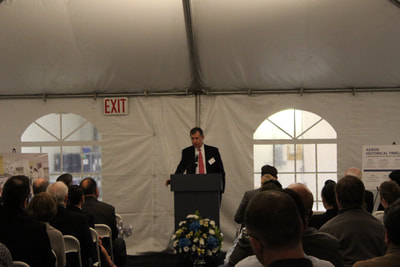
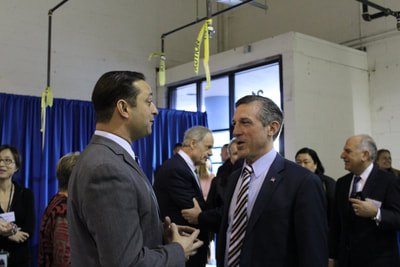
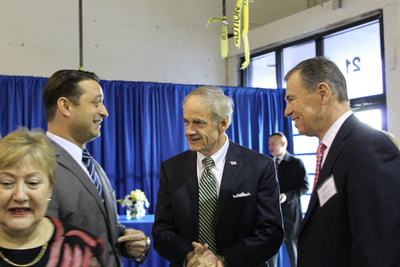
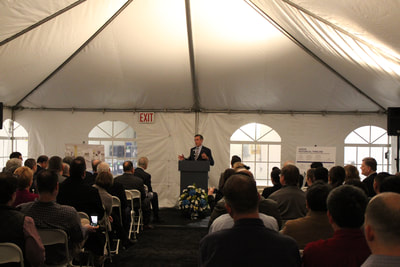
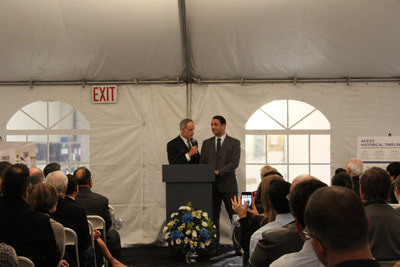
 RSS Feed
RSS Feed